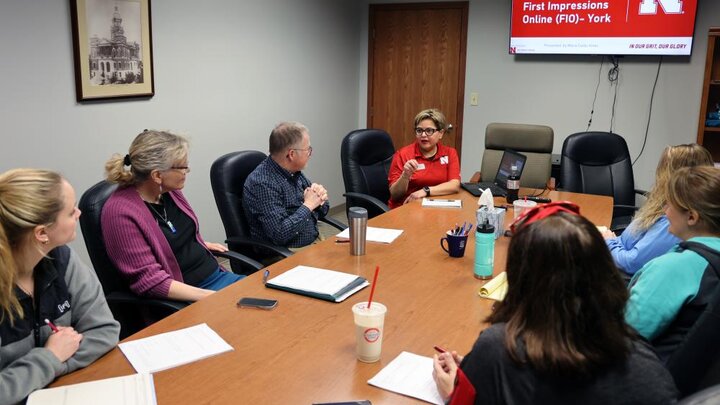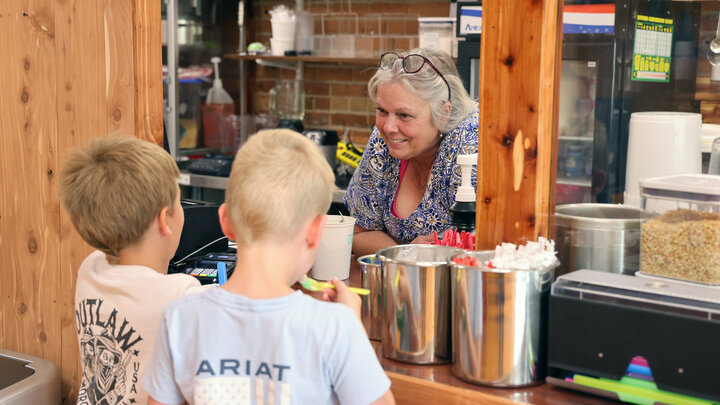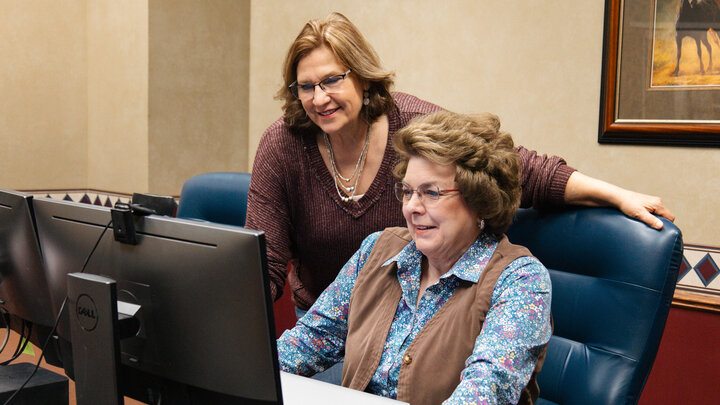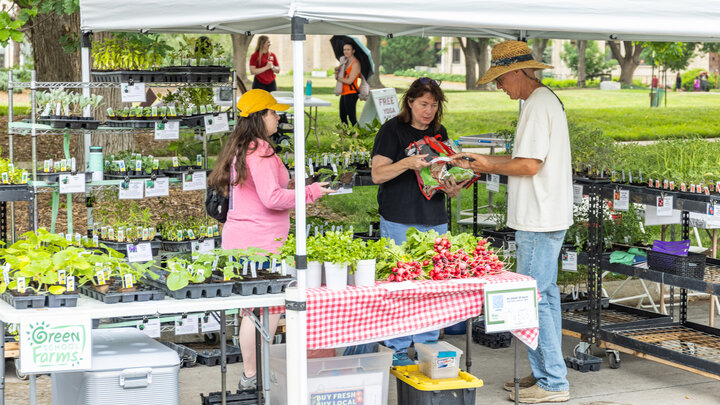There’s an old saying that you don’t know your own backyard. Referring to tourist attractions, the adage conveys a common belief that New Yorkers never go to Times Square, and Arizonans never visit the Grand Canyon. Whether that’s true or not, hometowns often feel so familiar that residents don’t consider what impressions they give to outsiders. First Impressions Online, Rural Prosperity Nebraska’s newest community development program, gives people a view of their own backyard.
“It’s a program where we go through a survey and look at a community online,” said Jason Tuller, the Rural Prosperity Nebraska Extension educator who created the program. “We have one person do research on a phone and one person do it on a computer, because the results are different. Then we give those results back to the community.”
“Looking at your community” means searching for a community online and seeing what comes up. What restaurants are there? What attractions? Gas stations? Hotels? Are phone numbers listed? Hours? Are social media sites up to date? Or is information missing? Tuller said because search engine algorithms change depending on search history, it matters that the survey is conducted by people who don’t live in town.
“If you want a hamburger, you know where to go, so you don’t Google it, but a tourist does,” he said. “Why would Mel’s Diner have a website? It’s been downtown for 87 years. Because the guy from Oklahoma has no idea it’s there, and if it’s not online, his phone is going to say ‘no restaurants,’ and he’s going to drive through.”
Inspiration for the program came during the COVID-19 pandemic, when extension educators couldn’t visit communities physically. Tuller began Googling Nebraska towns and noticed his searches didn’t show many of the unique amenities he knew existed there, such as mom-and-pop diners or a novelty toy museum. First Impressions Online aims to help communities match their online presence with their physical presence, namely for those searching their town — new and potential residents, and tourists.
Community leaders in York recently met with Maria Cantu Hines, a Rural Prosperity Nebraska extension educator, to review the results of their First Impressions Online report.
“It was very enlightening,” said Sue Crawford, city administrator. “We learned some very specific first steps to take. One is YouTube. We have not been as intentional about YouTube as we probably should be.”
During their discussion, Cantu Hines emphasized that their meeting was not an accountability session for how “good” or “bad” the community looked online. It was simply a snapshot of search results, the biggest surprise being that York’s Wikipedia page was the second most popular site, after the city’s official site. What came as no surprise was that York’s colorful water tower appeared in four of the first five images that showed up.
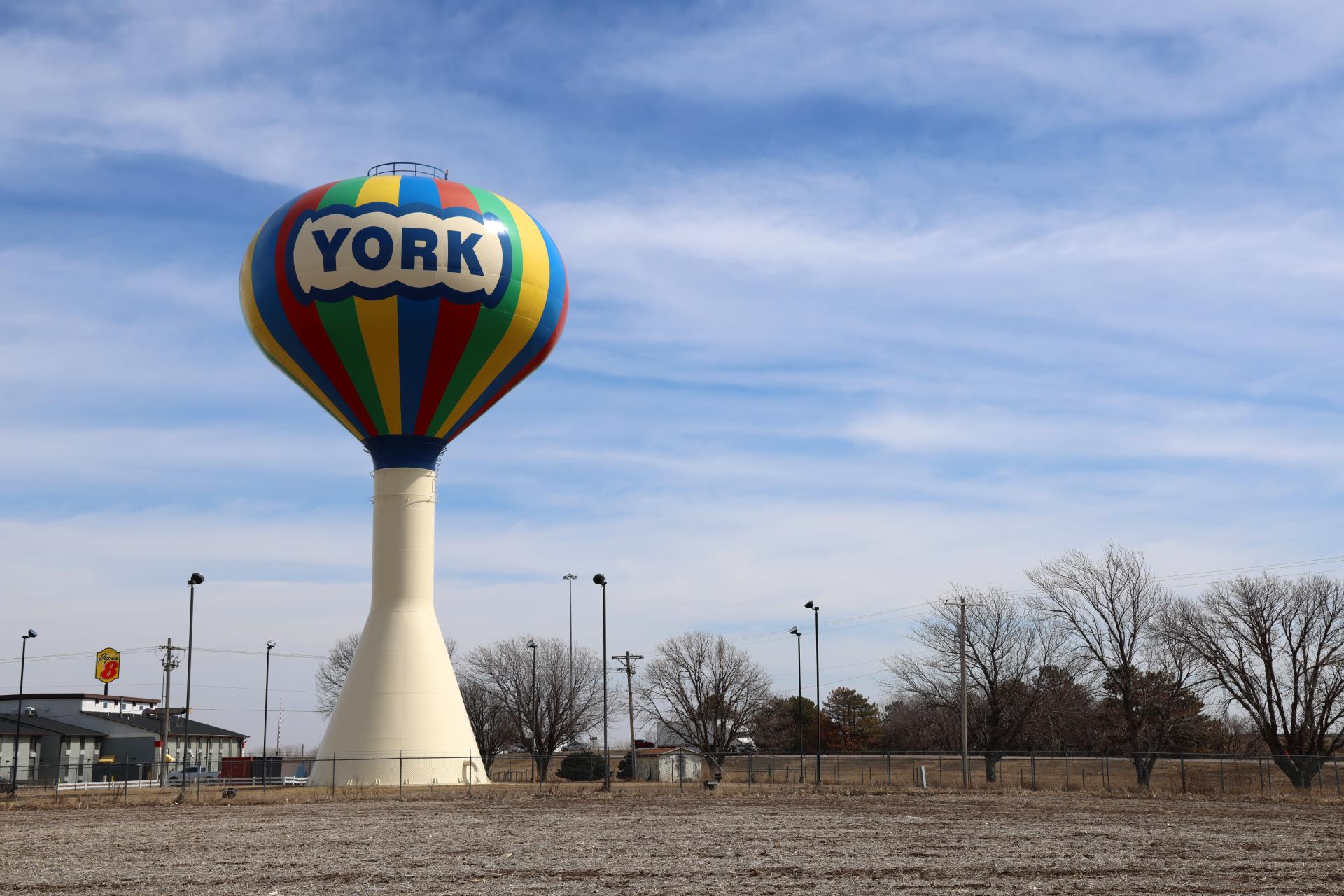
The water tower in York, Neb. Photo by Russell Shaffer
However, establishing a strong online presence isn’t just about getting hits. It’s about portraying Nebraska communities in an accurate way that showcases their unique qualities — proving that while the state may not be for everyone, there is at least something for everyone here. First Impressions Online is the first step in doing that.
“We have some great groundwork for some lunch-and-learn opportunities,” said Madonna Mogul, executive director for the York Chamber of Commerce. “Coming up in May is Small Business Week and Economic Development Week. We partner together with our memberships and offer programs to strengthen them. This would be a great launchpad for that.”
After reviewing the First Impressions Online report, communities can participate in two additional programs. Peer-to-Peer matches two similarly sized communities, and they work with a facilitator to maximize existing tourism assets. The Professional program brings in a team of experts in marketing, food and beverage, tourism, event planning and community development to identify communities’ existing strengths, opportunities for improvement and possible future initiatives regarding tourism. But it all starts with that first look online.
“I feel energized by the fact that we are doing well, but we can always do better,” Mogul said. “It just gives us that energy and a little more direction to focus that energy.”
Crawford said: “When we were in this room, we saw that a lot of learning also applies to the restaurants, and the attractions, and the realtors, so it would be very interesting to think about how to incorporate them more in the learning process. I think we will now do that as our next step.”
